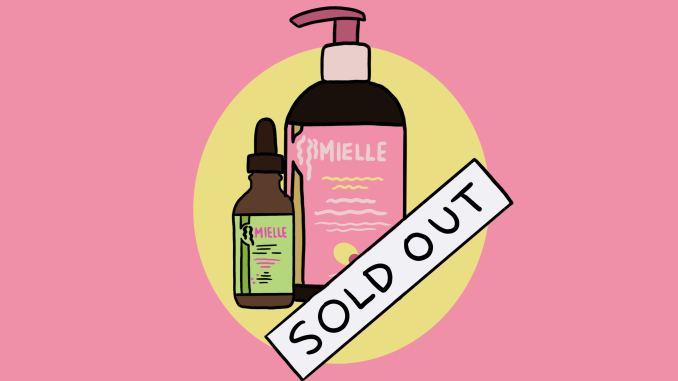
In 2017, SheaMoisture, a previously Black-owned hair care brand for women of color, posted an anti-hair hate campaign video featuring two white women with straight hair and only one Black woman with curly hair on Facebook and received backlash from their Black consumers. SheaMoisture previously took pride in meeting the needs of women of color, but the brand adjusted its formula to allegedly attract white customers with straight hair, Teen Vogue reported.
Influencers heavily promote products on social media and can earn profits. Many college students consume content from these influencers and buy their promoted products without doing any research about who the product is meant for.
On platforms like TikTok, influencers can contribute to whitewashing products meant for people of color at a much faster pace when they promote them to white audiences. Hair and makeup industries tend to exclude people of color, so when white consumers purchase products white people want and other people need, they further limit the products’ availability.
It’s important for students, especially white students, to be more conscious when buying products recommended by influencers to reduce unnecessary purchases that limit access to products others need.
Recently, TikTok influencer Alix Earle has become popular with her impact referred to as the “Alix Earle Effect,” as her followers will immediately buy products she promotes.
On Dec. 28, Earle promoted Mielle Organics’ Rosemary Mint Scalp & Hair Strengthening Oil. Mielle is a Black-owned brand, and Earle is a white woman with straight hair. Many white TikTok users who don’t need the product bought it after Earle, causing it to sell out and be less accessible to people of color who need the product, like the SheaMoisture incident.
Influencer marketing is almost a $14 billion industry, according to Influencer Marketing Hub. As social media becomes a massive marketing industry, consumers are sucked into buying products they have no knowledge about because an influencer posted a paid sponsorship about it.
Social influence can be damaging to body image because influencers are getting paid to promote products concerning vanity, which causes young adults to buy products they don’t need, said Sydney Kirchner, a junior communications studies major.
“It’s commodifying girlhood,” Kirchner said. “My little sister sees someone that she likes on TikTok, and she feels like she has to buy them.”
Influencers should also be transparent about the products they’re promoting and say who products are meant for and if they are in a paid partnership with the brand. This can give consumers honest reviews, so they put more thought into buying products.
Posting products and brands deals with transparency is vital, said Jenn Evans, a senior advertising major and TikTok and Instagram influencer.
“We need to take that extra step and be mindful of who we work with because now our name is associated with that brand,” Evans said. “In my captions, when I get the outfit details for each piece, I rate it one through 10 and I say why I like it or don’t like it, and if it’s functional or not functional.”
Additionally, influencers must learn how to use platforms without making harmful decisions that could reduce marginalized communities’ access to limited beauty products.
It takes time to think realistically about who the influencer is and why they’re appealing, said Guillermo Caliendo, a communication and social influence professor.
“The more we teach students across the university about the benefits and the detriments of social media, a person now is armed, equipped to decide what they take and what they need,” Caliendo said.
If students put in the effort to research the promoted products by influencers, they can navigate what they actually need and separate media from reality.


Be the first to comment